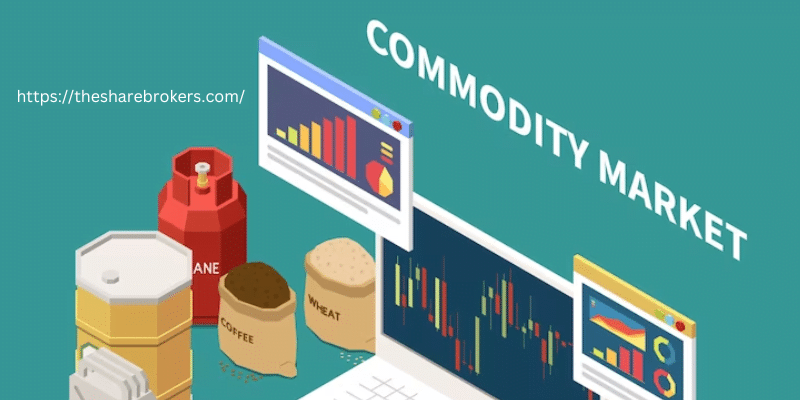
Commodities have long been considered a popular investment option for both individuals and institutions. From precious metals like gold and silver to energy resources such as oil and gas, commodities offer a unique asset class that can diversify investment portfolios. However, like any investment, commodities come with their own set of advantages and disadvantages. In this article, we will explore the pros and cons of investing in commodities, helping you make an informed decision about whether to include them in your investment strategy.
What are the Pros of commodities?
Pros of Investing in Commodities:
- Diversification: Commodities provide an effective way to diversify investment portfolios. Unlike traditional stocks and bonds, which are influenced by factors such as economic conditions and corporate performance, commodities often have a low or negative correlation with other asset classes. This means that during periods of economic uncertainty or market volatility, commodities can act as a hedge, potentially reducing overall portfolio risk.
- Inflation Protection: Commodities have historically served as a hedge against inflation. When inflation rises, the prices of commodities tend to increase, preserving their purchasing power. Investing in commodities can help offset the erosion of the value of fiat currencies, making them attractive during inflationary periods.
- Tangible Assets: Commodities are tangible assets with inherent value. Unlike stocks or bonds, which represent ownership in a company or debt instrument, commodities have a physical presence. This tangibility can provide a sense of security for investors, as they hold an asset with intrinsic value that is not reliant on the performance of a particular entity.
- Potential for High Returns: Commodities can offer the potential for significant returns, especially during periods of high demand or supply shortages. Market dynamics and global events can lead to price fluctuations, presenting opportunities for investors to profit from these price movements. Skilled investors who can accurately predict market trends and make informed decisions may benefit from the potential for high returns in commodity markets.
What are the Cons of commodities?
Cons of Investing in Commodities:
- Volatility: Commodity markets are known for their volatility. Price fluctuations can occur rapidly due to factors such as geopolitical events, weather conditions, or changes in supply and demand dynamics. This volatility can make commodity investing risky, as prices can experience significant swings, potentially leading to losses if investments are not carefully managed.
- Lack of Income Generation: Unlike stocks that can provide dividends or bonds that generate interest, most commodities do not generate income on their own. Investors rely on price appreciation to make a profit. This lack of income generation can be a disadvantage for income-seeking investors who depend on regular cash flows.
- Limited Control: Commodity investors often have limited control over the underlying assets. Unlike investing in a company, where shareholders have some level of influence over decision-making, commodities are subject to external factors beyond an investor’s control. Changes in regulations, political instability, or natural disasters can affect commodity prices, making it challenging to predict and manage investments effectively.
- Specialized Knowledge: Successful commodity investing requires a deep understanding of the specific market, including supply and demand dynamics, geopolitical factors, and global economic trends. Without proper research and analysis, it can be challenging to navigate the complexities of commodity markets and identify profitable opportunities. This specialized knowledge can act as a barrier for novice investors.
What are the risks of investing in commodities?
The risks of investing in commodities include high volatility, lack of income generation, limited control over underlying assets, and the need for specialized knowledge. Commodity prices can experience significant fluctuations due to various factors, making them highly volatile. Unlike stocks or bonds, commodities typically do not generate income on their own, and investors have limited control over the assets. Additionally, successful commodity investing requires a deep understanding of specific markets, which can be a barrier for inexperienced investors. Thorough research and consideration of these risks are important before investing in commodities.
What are the advantages of investing in commodities?
The advantages of investing in commodities include portfolio diversification, inflation protection, tangible assets, and the potential for high returns. Commodities provide a way to diversify investment portfolios as they often have a low correlation with other asset classes. They can act as a hedge against inflation, preserving purchasing power. Commodities are tangible assets with intrinsic value, offering a sense of security. Additionally, skilled investors can potentially benefit from price fluctuations in commodity markets, leading to high returns. Considering these advantages can help investors decide whether to include commodities in their investment strategy.
Is it a good idea to invest in commodities now?
The decision of whether it is a good idea to invest in commodities now depends on various factors such as individual financial goals, risk tolerance, market conditions, and the investor’s understanding of commodity markets. It is recommended to conduct thorough research, consult with a financial advisor, and analyze current market trends before making any investment decisions. Understanding the pros and cons of investing in commodities can help investors determine if it aligns with their investment objectives and risk appetite.
Conclusion:
Investing in commodities can be an attractive option for diversifying investment portfolios, hedging against inflation, and potentially achieving high returns. However, it is crucial to consider the inherent risks and challenges associated with commodity investing, including volatility, lack of income generation, limited control, and the need for specialized knowledge. As with any investment, thorough research, careful consideration, and professional advice are essential to make informed decisions and mitigate risks.



